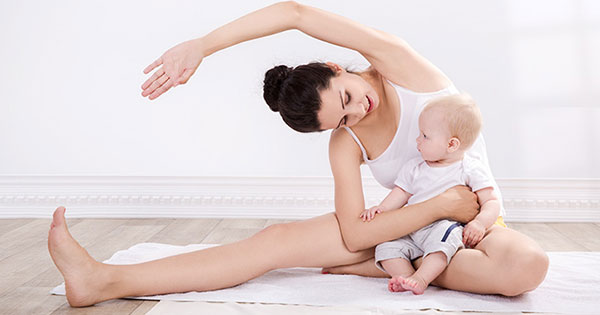Looking After Yourself Post-Birth

The weeks after your baby is born can be a bit of a whirlwind, and it’s really important not to lose sight of the need to look after yourself as well as your new family member. The six to eight weeks after giving birth are a time for you to get plenty of rest, good food, and help from others.
GP Checkup
Your final postnatal checkup will be around six weeks post-labour. Your doctor will discuss any health problems and check your breasts and abdomen. You may also need a pelvic exam and a blood count, and any lacerations will be checked to see how healing is progressing.
Body Changes To Expect
● You will need to use extremely absorbent sanitary towels, such as Medicare Maternity Pads as you will bleed a lot after the birth, and tampons shouldn’t be used unless a doctor says so as they may cause infection.
● After about two to three weeks the blood loss will diminish and eventually become brown/clear and stop eventually.
● If you notice the loss has an odd odour or becomes heavier or a brighter red, notify the midwife or public health nurse so they can rule out infection.
● Your next period might start within the first six weeks although this might be later if you aren’t breastfeeding.
● As your uterus shrinks back to normal size you might feel mild pain, so paracetamol is a good option if it is uncomfortable for you. Speak to a doctor if you need a stronger painkiller.
● Make sure you take medication to relieve soreness of the perianal area, especially if you have had an episiotomy.
● Your stitches will take 2 weeks to dissolve, and drink a lot of water to avoid your urine stinging and avoid perfumed products.
● Your breasts can become large and tender, and the first milk (colostrum) produced is yellow and in small quantities.
● A well-fitting maternity bra and breast pads are indispensable during this time. PregnancyandBaby.ie are stockists of Carriwell Maternity Bra's and an extensive range of Breast Pad & Breast Shields to make her life easier.
Remember To
● Eat Well
Protein is vital for growth and repair, and your iron levels are an important thing to watch. Eat plenty of fibre to avoid strain when going to the toilet to protect your stitches. Eat every 3 to 4 hours and have plenty of snacks on the go.
● Mind Your Back
Lift your baby with your knees, and use a footrest when breastfeeding or sitting to keep those legs elevated.
● Look After Your Bladder
Most women experience some form of bladder weakness during and after pregnancy, so you’re not alone! Drink plenty of fluids, and try rocking backwards and forwards on the loo to lessen the pressure of the womb on the bladder.
Cut down on caffeine and fizzy drinks, as they can irritate the bladder and of course no alcohol. Pelvic floor exercises are also a must, and it’s worth going to a postnatal physio class.
C-Section Recovery
It’s important to get as much rest as possible following a C-section. Avoid stairs as much as possible, but try and get out for a short walk every day to keep circulation going.
Take prescribed painkillers to manage your discomfort, and after 6 weeks your tissues should be healed completely. You should then be able to drive a car, have sex and get back to your regular exercise regime. Always remember to take things at your own pace though, and only do things when you feel 100% ready.
The Theraline C Section Support Belt is designed to protect, support & soothe in the weeks after a caesarean
Back to Post Pregnancy Category
